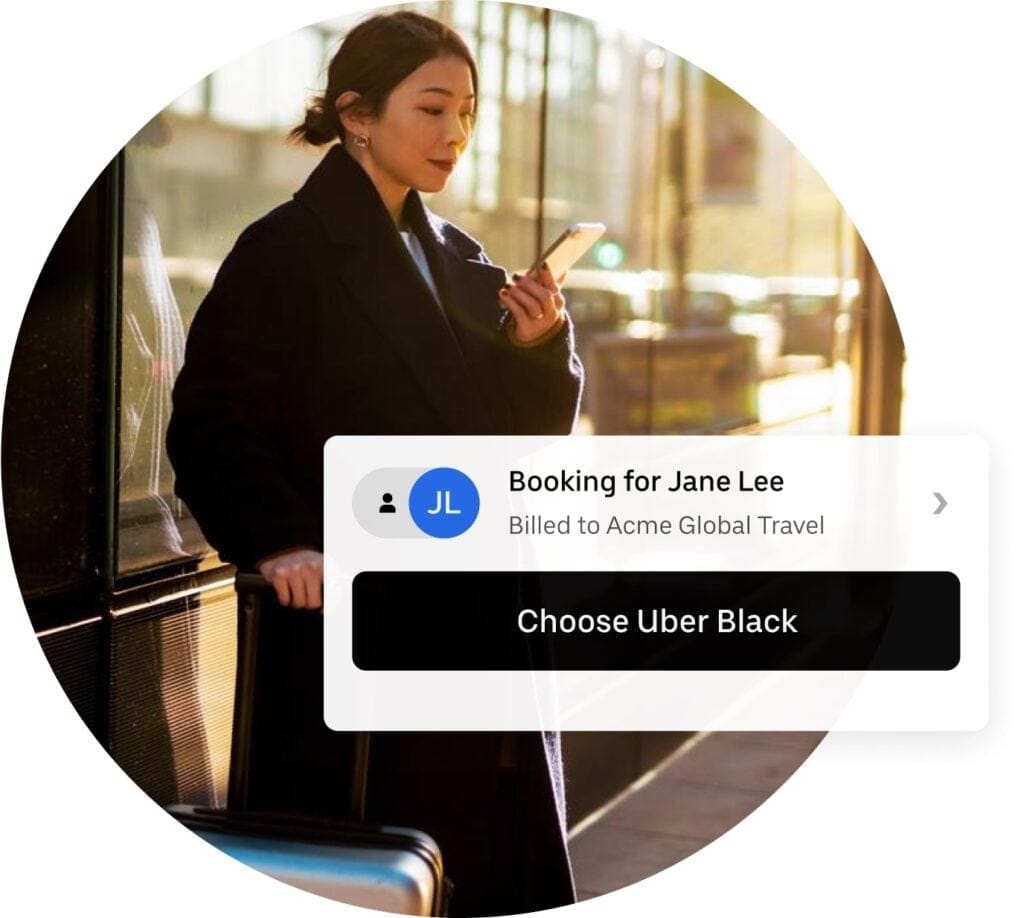Transforming Executive Travel: Delegate Booking with Uber
12 September 2024 / Global
Introduction
In the competitive world of corporate travel, efficiency and precision are paramount. At Uber, we’ve recognized a specific need within this sector: senior executives and their assistants require a streamlined and reliable booking experience. To address this, we developed the Delegate Booking tool, a significant enhancement to our platform designed to empower executive assistants (EAs) to manage travel with ease and precision.
Why We Developed Delegate Booking
Recognizing the unique challenges faced by EAs tasked with arranging travel for their executives, we saw a significant opportunity to enhance their experience. Traditionally, EAs relied on multiple third-party services to meet the sophisticated demands of executive travel, striving to provide high-quality, seamless journeys. With the introduction of our Delegate Booking tool, we have elevated Uber’s offerings to align with the premium standards expected in executive travel, enhancing control over trip modifications and communications for a superior service experience.
Key Considerations:
- User Experience Continuity: Maintaining the same quality of experience for the executive as if they had booked the ride themselves.
- Control and Visibility for EAs: Providing EAs with the ability to fully manage the ride, including the flexibility to modify or cancel trips and communicate directly with both the executive and the driver.
The Engineering Challenge
Our main focus was to evolve the existing architecture to accommodate the participant model in the trip booking process, aimed at enhancing flexibility and inclusivity. The objective was to develop a seamless integration that allows executive assistants to manage bookings effortlessly, while maintaining the high-quality experience for executives. This advancement necessitated a strategic transformation in how our platform manages user roles and permissions, reinforcing our commitment to a more adaptable and user-friendly service.
- Service Expansion: We expanded our service layers to accommodate multiple user profiles interacting with the same trip.
- Notification System: We extended our notification system to send relevant updates to both the executive and the EA throughout the journey.
- Billing and Auditing: We integrated our billing engine with the new model so that financial transactions are accurate and reflect the delegated booking accurately.
Architecture Overhaul
Our platform was originally designed with a simple and user-centric model: the person booking the ride is intimately involved in all stages of the journey. To introduce Delegate Booking, a feature that enhances flexibility and inclusivity, we embraced the challenge of innovating across our ecosystem. This expansive upgrade spanned over 30 services and 5 different platforms, integrating a diverse array of technologies from backend systems like GO, Java®, and Node, to frontend applications such as Fusion, iOS®, and Android®. This holistic transformation not only broadens our service capabilities but also enriches the user experience.
How Delegate Booking Works
The Delegate Booking tool integrates deeply with our existing infrastructure:
- User Interface: Executives assign a delegate (the EA) from within their Uber rider app by entering the EA’s business email and specifying permissions.
Figure 3: Flow diagram following the request for a ride from an EA for their executive.
- Booking and Management: EAs access their delegated profile through their version of the Uber rider app, where they can book rides, select preferences, and manage trip details in real time.
- Backend Integration: Our backend systems support these operations by ensuring that all data flows are secure and that every action taken by an EA on behalf of an executive is logged and auditable.
Impact and Future Directions
The introduction of Delegate Booking has not only improved our service offering, but has also opened up new avenues for feature expansion. We are now exploring how these changes can benefit other user groups, such as office managers or team coordinators, who may also require similar functionalities.
This feature introduces a delightful unlock of a segment where trips can be conveniently booked by another party while the payment is gracefully managed by the rider. This offers both flexibility and ease, enriching the user experience.
Next Steps
Reuse of Design:
- Utilizing the existing design framework for new feature unlocks
- Adapting the technology to support scenarios involving multiple trip participants
- Aim to enhance the seamless trip experience on the rider app
Integration into Uber’s Vision and Goals:
- Ensuring the success of Uber Platinum through a robust delegated business solution
- Expanding up-market with tailored business offerings such as Biz Comfort and Platinum
- Targeting a user base that demands high-quality, executive-grade booking experiences
Conclusion
The introduction of delegate booking by Uber marks a significant advancement in our service offerings, particularly for executive travel. This feature responds to the evolving needs of our clientele. By empowering executive assistants to efficiently manage travel arrangements through the Uber platform, we strive to simplify logistics while enhancing user satisfaction and loyalty.
This innovation is not just about adding a new feature—it’s about transforming how business is done. It underscores our commitment to continuous improvement and customer-centric solutions. We will continue to refine this technology, exploring new use cases and expanding its capabilities to meet the demands of a dynamic corporate world.
Acknowledgments
I would like to extend my heartfelt thanks to Saravanan Balasubramanian, Anshu Kumar,Ning Cao & Isha Khanna for their invaluable contributions to this blog. Their dedicated efforts in reviewing the content and providing insightful feedback were instrumental in shaping the final version.

Divya Parashar
Divya focuses on revolutionizing the scale and customer success charter for U4B (Uber for Business). Drawing upon his experience in software engineering and enterprise architecture, he spearheads the development of a groundbreaking architecture that seamlessly integrates cutting-edge technologies, empowering users to interact with the platform effortlessly.

Shikha Khare
Shikha is a seasoned product and technology leader, known for driving innovation and large-scale transformations at Uber. She has a proven track record of delivering on bold technology visions, leading Uber for Business, Uber Health, and Transit engineering to success
Posted by Divya Parashar, Shikha Khare
Related articles
Most popular

How Uber Eats fuels the University of Miami Hurricanes off the field

How Uber Uses Ray® to Optimize the Rides Business

MySQL At Uber



